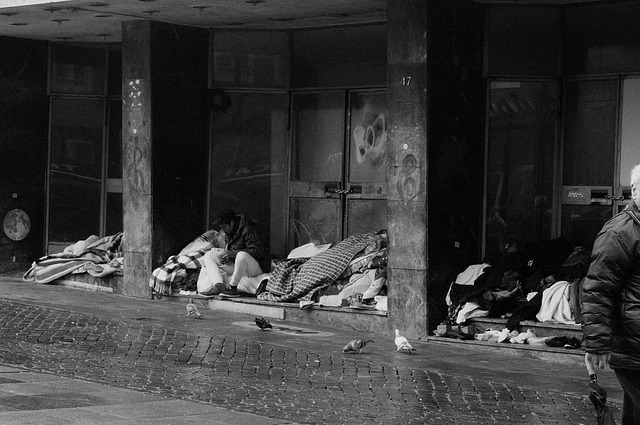This article was featured in the May 27 digital-only edition of Street Sense. Until it is safe to resume person-to-person sales, you’ll always be able to find the current digital-only edition at streetsensemedia.org/Digital Thank you for reading! Please continue to support our vendors through our mobile app (streetsensemedia.org/App).
Requiring or encouraging people to “stay home to flatten the curve” overlooks a key fact: Not everyone has a home to shelter in, during a pandemic or otherwise. While some communities have rushed to create short-term shelters—such as trailers or vacant hotel rooms—we must not overlook the urgent need for long-term housing solutions to protect the health and safety of our entire community.
D.C.’s thousands of people who are homeless face a number of challenges in this pandemic. A recent study showed that “homeless individuals infected by COVID-19 would be twice as likely to be hospitalized, two to four times as likely to require critical care, and two to three times as likely to die than the general population.”
And COVID-19 has only heightened what we already knew: People experiencing homelessness face greater health risks in general, with a mortality rate four to nine times higher than those in stable housing, thanks to chronic illness as well as violence.
Our nation’s teaching hospitals, and their dedicated teams of physicians, nurses and other health professionals, are on the frontlines caring for patients in this crisis. As safety-net institutions who care for the poor and most vulnerable, they see firsthand how patients without a home struggle with the need to “shelter in place” after being treated and released from the hospital.
The coronavirus underlines the simple truth that housing is health care. At D.C.-based Miriam’s Kitchen, we recently helped a medically vulnerable and elderly client move into his first home in years. He is grateful to have a safe place to store his medicine and meet virtually with his doctor. In light of the pandemic, he shared, “I cannot imagine living at a shelter right now. I have no problem staying inside my nice apartment.”
To improve the health of all, we must have housing for all.
To do that, we cannot ignore that the majority of people experiencing homelessness nationwide, and in D.C., are African American. According to D.C.’s most recent Point in Time homeless census, Black adults comprise 87 percent of D.C.’s adults experiencing homelessness and 77 percent of COVID-19 fatalities, but just 47.1 percent of D.C.’s overall population. Centuries of structural racism must be addressed.
While local governments, the private sector and nonprofits such as the National Health Care for the Homeless Council have come together in powerful ways to address the needs of our unsheltered neighbors, we must dig deeper. We need to explore and disrupt the root causes of homelessness, including stagnant wages, lack of health care and mental and behavioral health services, and unaffordable housing (among others).
The prescription for more equitable housing and health outcomes must also entail prioritizing resources and investments to the most vulnerable—and now is a good time to learn from the lessons of this pandemic.
With a tight local budget season ahead, we urge Mayor Bowser and the D.C. Council to protect and scale up proven solutions like the Permanent Supportive Housing Program that has connected thousands of individuals—the majority of whom are people of color—to housing. The Way Home Campaign, an advocacy movement led by Miriam’s Kitchen and supported by over 100 organizational partners, is calling on Mayor Bowser to invest $51.6 million in life-saving housing interventions to protect some of our most vulnerable neighbors.
Finally, we must always include the voices of individuals who know what it’s like firsthand. At Miriam’s Kitchen, our guests who currently experience or have experienced homelessness have told us many times: “Housing saves lives. Housing saved mine.”
To advance housing and health care, we must think long-term and look beyond temporary shelters. The health of our neighbors—and neighborhoods—depends on it.
David A. Acosta, MD, is chief diversity officer of the Association of American Medical Colleges, which serves and leads America’s medical schools and teaching hospitals on the frontlines of this pandemic. Scott Schenkelberg is president and CEO of Miriam’s Kitchen, which has helped house more than 1,000 individuals in its 37-year history.








